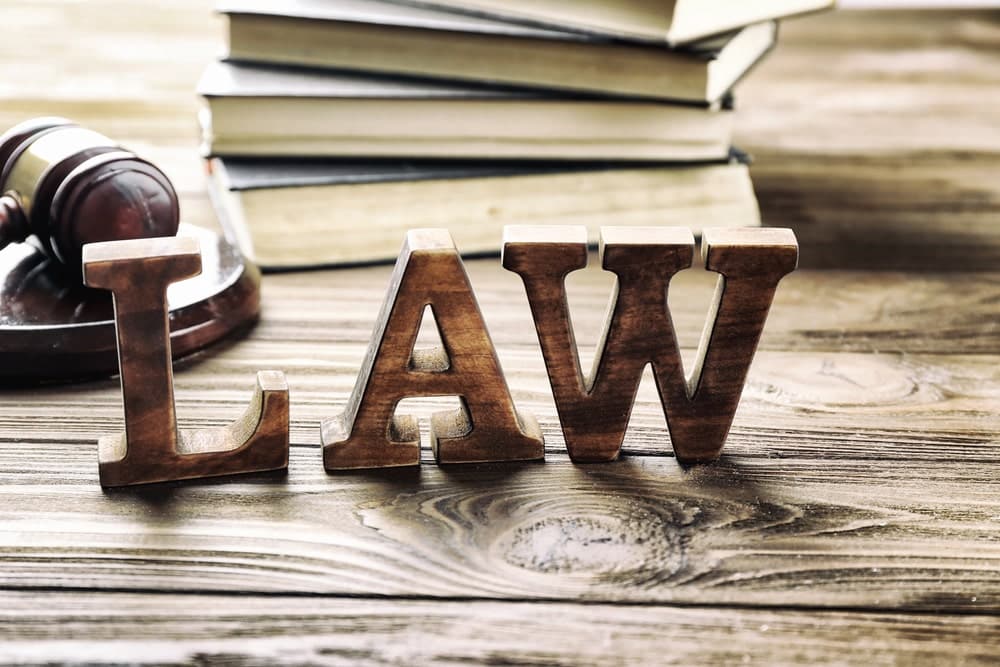Bail Code in Maine
Title 15, Chapter 105 of the Maine Revised Statutes governs all issues pertaining to bail in Maine. When a defendant has been arrested and charged with a crime, the judge or bail commissioner will normally set bail.
Bail allows the defendant to remain free while the charges are pending, the purpose of which is to that the integrity of the Maine judicial is preserved, that the defendant appears at all scheduled court proceedings, and that the public safety is protected.
Bail is guaranteed to all persons charged with a criminal offense, except in specifically defined situations. One example where bail is discretionary is in formally capital crimes such as murder.
Call 207-571-8146 or contact us online to schedule a consult with one of our highly skilled criminal defense & OUI lawyers, serving Southern Maine, today.
Table of Contents
How is Bail Determined in Maine?
Bail is available in two contexts: pre-conviction bail and post-conviction bail.
Pre-conviction Bail
Pre-conviction bail is the most common form of bail and is imposed at the very start of a case, usually right after a person has been arrested and charged with a crime.
Post-conviction Bail
Post-conviction bail is imposed when a person has pled guilty to a crime or been found guilty of a crime, following a trial by judge or jury. In those cases, a person will usually have to post some form of cash bond if he or she wishes to remain free, pending imposition of a sentence by the court.
In the pre-conviction bail context, bail will be set as either personal recognizance, which means the defendant essentially “promises to appear” to all scheduled court appearances or bail is secured, meaning some form of cash or real estate is used to secure the defendant’s appearance in court and to guarantee that the defendant abides by the law.
Any security imposed by the court or bail commissioner cannot be excessive and can only be set for the express condition of ensuring that the defendant abides by the law, appears in court and doesn’t impugn the judicial integrity of the court system. With that said, cash bail has been set in excess of $500,000.00 before in the State of Maine and that number has not been deemed excessive upon review.
When determining whether or not to set bail, the court must determine additional factors such as the following:
- Whether or not the defendant has significant ties to the community
- The defendant’s criminal history or lack thereof
- Whether or not the defendant has failed to appear in court before
- Physical, mental or medical issues that the defendant suffers from
- Whether or not the defendant has a drug or alcohol program, and
- Whether or not the defendant has previously violated any condition of bail previously imposed in the current or former cases before the court.
In addition to setting secured or unsecured bail and reviewing the defendant’s history, the court may exercise its discretion and set any condition or combination of conditions it sees fit to ensure that the defendant appears, that the safety of the community is protected and that the defendant abides by the law.
Bail conditions in Maine
Examples of commonly imposed conditions include:
- Prohibition against the possession or consumption of drugs or alcohol
- Prohibition against the possession or use of dangerous weapons
- Prohibition against contact with co-defendants in a case
- Prohibition against contact with a named “victim” in a case
- Subject a person to random searches of their home, car or person for drugs, alcohol or dangerous weapons
- Order a person held without bail until a bed is secured in a drug or alcohol treatment facility
- Order a person to attend drug or alcohol counseling
- Remain in the care and custody of a parent, spouse, guardian or any other person the court deems responsible to ensure the defendant abides by his or her bail conditions
- Seek or maintain employment or enroll in an educational program
- Abide by a curfew
- Undergo a psychological evaluation
- Obtain a supervision contract with Maine Pretrial Services
- Report changes of address or phone number to the court
- Report daily, in person or by phone, to the local police department
- Maintain regular contact with his or her defense attorney
Call 207-571-8146 or contact us online to schedule a consult with one of our highly skilled criminal defense & OUI lawyers, serving Southern Maine, today.
When Bail May Be Denied in Maine
In cases involving formerly capital offenses such as murder, the court will determine bail under section 1026, unless the State moves for a harnish hearing.
Harnish Bail Proceedings
In those cases, the defendant will be held without bail, pending the outcome of the hearing. During the harnish hearing, the State must demonstrate the following:
- That there is probable cause to believe a crime was committed, which was a formerly capital offense
- That the defendant is a substantial risk for flight;
- That the defendant is a substantial risk to the community; and
- That the defendant is a substantial risk for committing new criminal conduct if placed on bail.
During the harnish hearing, the State may introduce evidence in the form of live testimony, affidavits, reports or any other forms of reliable hearsay. The State must establish probable cause to believe that the crime committed was a formerly capital offense and by doing so, may tip its hand as to the evidence in its possession. This can prove to be an invaluable discovery tool for the seasoned defense attorney.
If the State proves the above by clear and convincing evidence, the court must order that the defendant is to be held without bail. If the State fails to prove the aforementioned factors by clear and convincing evidence, the court can use its discretion to set appropriate bail under section 1026, in a manner that will ensure the integrity of the judicial process is protected; that the defendant will appear for all of his or her court proceedings and that the defendant won’t commit any new criminal offenses while out on bail.
Probation Revocation Proceedings
When a person is sentenced to a split sentence, which includes a period of incarceration followed by a term of , that person’s probation can be revoked if they commit a crime while on probation or otherwise violate the terms of their probation. When a probation officer moves to revoke the defendant’s probation, the court will normally enter a no-bail hold, pending a full and final hearing on the violation.
Extradition Proceedings
If you’re being held for extradition to another state, a Maine judge cannot set bail and you will be held without bail unless one of the following occurs:
- The State of Maine cannot prove that you are the person sought in the Governor’s Extradition Warrant, or
- The State that seeks your extradition no longer desires to extradite you.
When Can Bail Be Revoked in Maine?
Bail can be revoked at any time if:
- You’ve been arrested for the commission of a new crime or
- It is alleged that you’ve violated your conditions of release. An example of violating a condition of release would be if the Court initially set conditions of no use or possession of alcohol.
The police show up at your door for a random bail check and observe that you appear to be intoxicated. The police can now arrest you for a violation of your bail conditions and charge you with a new crime of Violations of Conditions or Release.
If you’ve been arrested and charged with Violations of Conditions of Release, you’ll be held without bail until you can be brought before a judge. In most cases, the District Attorney will argue for forfeiture of your bail and that you subsequently be held without bail. The judge can take any or all of the following action:
- He can revoke your old bail bond and order you held without bail
- He can order the cash component of bail be forfeit and reset bail at a higher $ amount
- He can set new bail, concurrent with the old bail
- He can order you released but impose additional conditions to ensure your compliance with the terms of bail
Call 207-571-8146 or contact us online to schedule a consult with one of our highly skilled criminal defense & OUI lawyers, serving Southern Maine, today.
When may bail be reviewed or modified in Maine?
De novo bail review
Anytime bail is set by a bail commissioner or a judge, you have a right to what is called de novo bail review. In essence, that means that anytime you are in custody as the direct result of bail set, which prevents you from being released from jail, a new judge will listen to your bail argument.
When requesting de novo bail review, a court is mandated to hear your petition within 48 hours, excluding holidays and weekends. For example, if bail was set on Thursday and the conditions were either A) unacceptable to you, or B) resulted in your continued confinement, the court would have to schedule your case for hearing on the following Monday, if you made a timely petition.
Whenever a court reviews a bail petition de novo, that court has the discretion to set the bail at a lower $ amount, delete conditions of the bail, leave the bail as is or increase the bail amount or number of conditions. Anytime you petition the court for a de novo bail review, you run the real risk of making things worse. Of course, if the bail was set at an amount that was so high as to prevent your pre-trial release, you have nothing to lose.
If a bail commissioner or district court judge set bail in your case, a superior court justice would hear the petition for de novo bail review. If a superior court justice set bail in your case, then a single justice of the Maine Law Court would hear your petition for de novo bail review. If your petition is denied, you are out of options other than petitioning a federal court under habeas corpus.
Substantial Change in Circumstances
Another avenue of approach when seeking to have bail modified is to aver a substantial change in circumstances. This places the case before the court, which must make a determination of whether or not the substantial change in circumstances warrants a modification of bail. Examples of substantial changes in circumstances include the following:
- Inability to obtain a Maine Pre-trial Services Contract
- Inability to raise the entire amount of funds necessary to post bail
- New evidence is discovered that tends to raise doubt about the legitimacy of the charges
- The family member you’re excluded from having contact with is gravely ill or dying
- You are precluded from going to the “victim’s” home and in essence have been rendered homeless. However, the “victim” has moved since the imposition of bail and the home is now vacant.
- The “victim” wishes to have in-person contact for the purpose of child visitation and exchange
Contact our Criminal Attorneys for Bail Help
If you’ve been charged with a crime and have questions about your bail conditions or wish to have your bail conditions modified so you can see your spouse or children, contact us at The Maine Criminal Defense Group at (207) 571-8146. We can help to make a difference.
Call 207-571-8146 or contact us online to schedule a consult with one of our highly skilled criminal defense & OUI lawyers, serving Southern Maine, today.
Blog Posts

If you receive a traffic ticket in Maine, you may be facing far more than demerit points or an administrative penalty. You could be facing criminal sanctions and a permanent[...]

In Maine, disorderly conduct laws effectively make disturbing the peace a criminal offense. While disorderly conduct is considered one of the least serious offenses under Maine’s Criminal Statutes, it can[...]

Any criminal charge for a drug-related offense is a serious matter in Maine,but how consequential the outcomes can get may depend on whether the charge is filed at the state[...]


Self-defense laws in the U.S. are complex, vary from state to state, and are often misunderstood. “Stand your ground” laws allow an individual to use deadly force in self-defense in[...]

Every day in Maine, people are charged with crimes that they did and did not do. Fortunately, in the U.S., we have a justice system that says you’re innocent until[...]

Expungement is the practice of legally erasing or striking out documents or information relevant to criminal charges. It’s not possible to expunge a criminal record in Maine. However, other avenues[...]

If you have been arrested or are under investigation for a crime in Maine, it is crucial to retain the services of a competent and experienced criminal lawyer. A criminal[...]

In the span of less than 5 decades, computers have utterly transformed our society. Those of the baby boomer generation will be able to appreciate the scale of this transformation[...]

Financial crimes can be among the most destructive to individual victims and to society as a whole. These crimes can also be among the most difficult to punish, because these[...]


